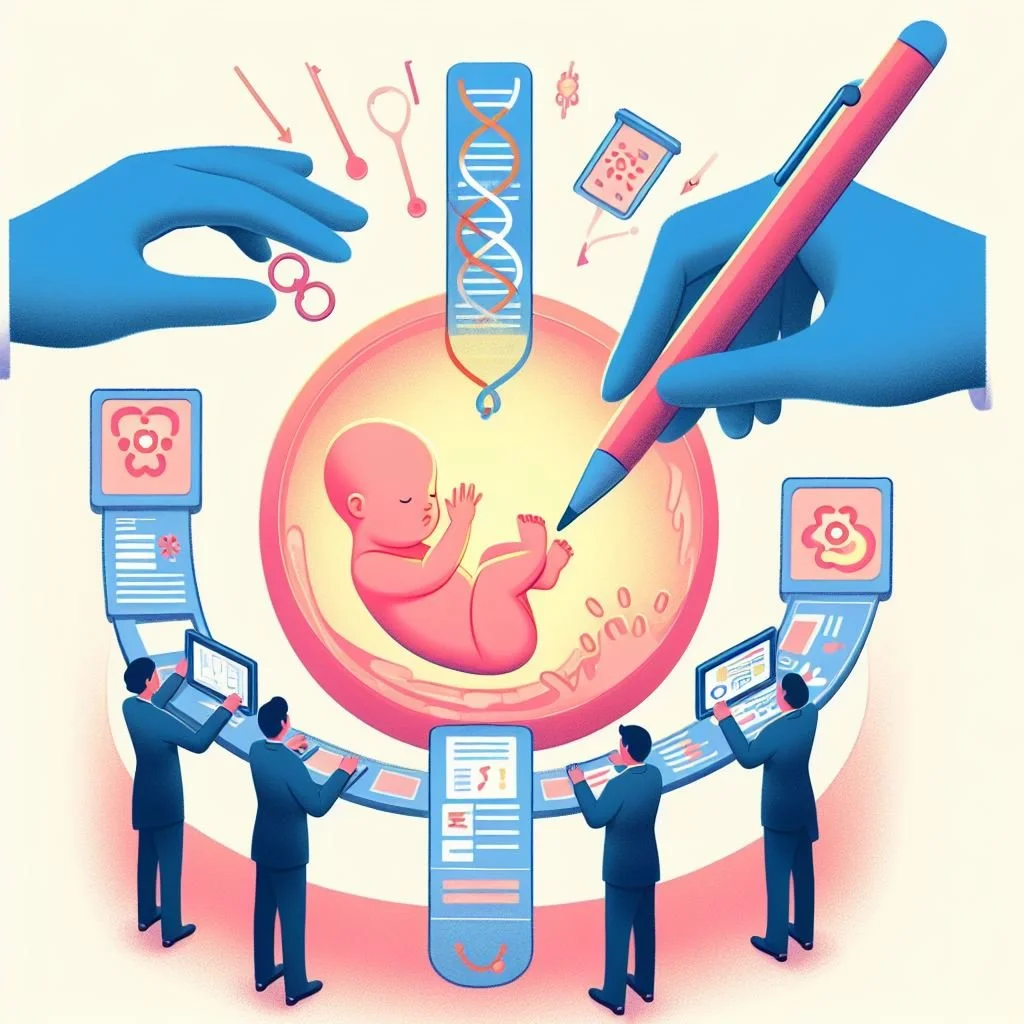How will data driven genetic testing of the unborn be regulated?
Once you publish something online it's difficult if not impossible to control how that work is going to be used. For example, we see how some content creators are pushing back against unacknowledged and/or uncompensated use of their works to “train” AI engines.
Now we have a situation where scientific researchers are complaining how their research data are being used. In the December 15, 2023 issue of Science, the article Genetics group slams company for using its data to screen embryos’ genomes describes how an international group of researchers is complaining publicly about how their genomic research data are being used commercially. Specifically, one company (Orchid Health) is marketing tests for human embryos conceived through IVF (in vitro fertilization) to test for the presence of a wide variety of single gene mutations:
Orchid will look not just for single-gene mutations that cause disorders such as cystic fibrosis, but also more extensively for medleys of common and rare gene variants known to predispose people to neurodevelopmental disorders, severe obesity, and certain psychiatric conditions such as schizophrenia.
According to a consortium of genomic researchers, Orchid Health is using research data in ways that violate their intentions regarding how their data should be used in embryo screening.
There are complications. On the one hand, many funding agencies require that research findings and data be made public. On the other hand, controlling how "public" data are eventually used raises a complex mixture of legal, ethical, and technical issues; look at how contentious the "training" of AI models on existing content has become. Heck, it's still difficult to unamiguously define what copyright "fair use" means in the face of constantly evolving technologies!
As far as the genetic testing of embryos is concerned, the cat is out of the bag. I'm a parent. I have personal experience with a parent’s hopes and fears concerning the health of an unborn child. Do people really think that legislators will be able to craft laws that resolve--in advance--what testing decisions parents can and and cannot make when facing parenthood?
I think not. Look at the messy patchwork of laws now governing abortion in the United States. Some states’ legislation takes life and death decision-making responsibility out of the hands of parents and medical professionals. The result: those able to travel can go to states where women’s rights are not so restricted.
A comparable patchwork of state laws might might evolve regarding genomic testing. The situation would be made even more complex once politics and religion are involved.
One possible scenario: parents-to-be in some states will travel to get the genetic testing they think they need, thus making genetic testing another medical “advantage” available primarily to the well-to-do.
Copyright (c) 2023 by Dennis D. McDonald. The attached illustration was created by Microsoft Bing’s Image Creator in response to the prompt, “Create a simple but elegant illustration of how difficult it is to control how genetic information can be used in testing unborn children.”

















